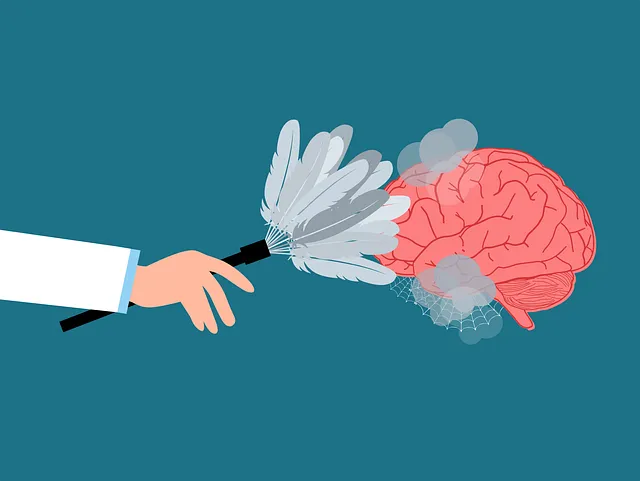The Kaiser Permanente mental health center in Northglenn employs a comprehensive risk management strategy focused on staff and patient well-being, encompassing stress management training, resilience building, cultural competency, and continuous improvement. Their holistic approach prioritizes open communication, emotional healing, and mindfulness meditation to foster a supportive environment, enhance patient outcomes, and prevent professional burnout, setting them as a benchmark for mental health services.
“Mental health professionals face unique challenges, necessitating robust risk management planning. This article explores a comprehensive approach to ensuring safe clinical environments, drawing insights from the Kaiser Permanente Mental Health Center in Northglenn’s successful strategies. We delve into understanding risk management dynamics specific to mental health care, identifying and assessing unique risks, and developing effective mitigation strategies. Additionally, we emphasize continuous monitoring and improvement processes, offering valuable guidance for practices aiming to emulate the Kaiser Permanente Northglenn model.”
- Understanding Risk Management in Mental Health Care
- The Kaiser Permanente Mental Health Center Northglenn Approach
- Identifying and Assessing Risks Specific to Mental Health Practices
- Developing Comprehensive Risk Mitigation Strategies
- Continuous Monitoring and Improvement for Safe Clinical Environments
Understanding Risk Management in Mental Health Care

Risk management planning is an integral part of ensuring the safety and well-being of both mental health professionals and their clients, especially in a setting like the Kaiser Permanente mental health center Northglenn. It involves identifying potential risks, assessing their likelihood and impact, and implementing strategies to mitigate those risks effectively. In the dynamic field of mental health care, where client needs can vary widely, risk management is not just about compliance; it’s a proactive approach to foster a supportive and therapeutic environment.
At Kaiser Permanente mental health center Northglenn, understanding that mental wellness coaching programs and inner strength development are key components of comprehensive risk management, we emphasize the importance of stress management techniques as part of our professional growth and training. By integrating these strategies into our practice, we empower both staff and clients to navigate challenges, promote resilience, and enhance overall mental health and well-being.
The Kaiser Permanente Mental Health Center Northglenn Approach

The Kaiser Permanente Mental Health Center Northglenn embraces a holistic approach to risk management, prioritizing the well-being of both patients and professionals. They focus on fostering an environment that encourages open communication, emotional healing processes, and mindfulness meditation as core components of their strategy. By integrating practices that enhance emotional intelligence, the center aims to mitigate risks effectively while promoting a supportive atmosphere.
This proactive method involves regular staff training sessions centered around stress management, resilience building, and recognizing early signs of burnout. Additionally, they offer individual counseling services to help professionals navigate personal challenges, ensuring they can provide optimal care. The Kaiser Permanente Mental Health Center Northglenn’s commitment to these emotional healing processes is a game-changer in the field, setting a benchmark for comprehensive risk management planning within mental health services.
Identifying and Assessing Risks Specific to Mental Health Practices

Mental health professionals face unique risks within their practices that demand meticulous identification and assessment. At a Kaiser Permanente mental health center Northglenn, for instance, navigating complex patient populations requires a nuanced approach. Risks may stem from cultural disparities, requiring healthcare provider cultural competency training to ensure effective communication and care. Additionally, managing high-stress cases and preventing burnout among staff is paramount.
Conflict resolution techniques become essential tools in mitigating these risks, fostering a safe and supportive environment. By proactively addressing potential hazards, mental health centers can enhance patient outcomes while safeguarding the well-being of their providers. This proactive approach aligns with broader healthcare industry efforts to improve workplace culture and prevent professional burnout, ultimately ensuring sustained quality care.
Developing Comprehensive Risk Mitigation Strategies

At a Kaiser Permanente mental health center Northglenn, risk management planning is a multifaceted process that goes beyond mere compliance. It involves crafting comprehensive risk mitigation strategies tailored to address the unique challenges faced by mental health professionals. These strategies must encompass a holistic approach, considering not just potential risks but also proactive measures to enhance resilience and promote mental wellness among staff.
By integrating initiatives like Trauma Support Services and leveraging resources such as the Mental Wellness Podcast Series Production, the center can foster an environment that prioritizes both personal and professional growth. Additionally, confidence-boosting programs play a crucial role in empowering professionals to navigate complex scenarios with greater ease. Such proactive measures not only mitigate risks but also contribute to a more sustainable and effective delivery of care.
Continuous Monitoring and Improvement for Safe Clinical Environments

At Kaiser Permanente mental health center Northglenn, continuous monitoring and improvement are paramount to fostering safe clinical environments. Regularly reviewing patient outcomes, staff interactions, and feedback mechanisms enables the center to identify areas for enhancement in mental wellness and emotional healing processes. This proactive approach ensures that practices align with best-case scenarios for emotional regulation, ultimately benefiting patients’ overall mental health and recovery journeys.
By implementing a robust monitoring system, the Kaiser Permanente Northglenn team can promptly address any emerging trends or concerns related to patient safety. Continuous improvement initiatives encourage open dialogue among staff members, fostering an atmosphere where emotional healing processes are prioritized. This dedication to quality ensures that the center remains at the forefront of providing compassionate and effective mental health care.
Mental health professionals face unique challenges in managing risks within their practices. By adopting comprehensive risk management planning, inspired by the successful strategies employed by the Kaiser Permanente Mental Health Center Northglenn, healthcare providers can create safer clinical environments. This involves identifying specific mental health-related risks, implementing tailored mitigation strategies, and continuously monitoring and improving safety protocols. Embracing these proactive measures not only protects patients and staff but also fosters a more resilient and effective mental health care system.






